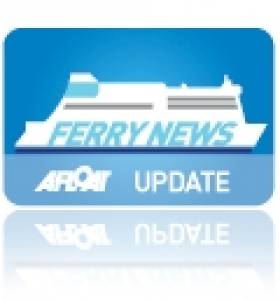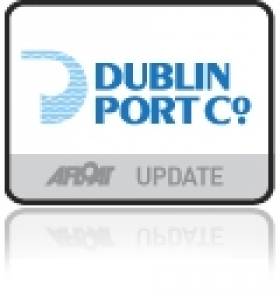Displaying items by tag: Minister for Transport Leo Varadkar
#FerryBOOST- Minister for Transport, Leo Varadkar has welcomed Irish Ferries decision as previously reported, to add two extra daily services on the Holyhead-Dublin route next month and with a new vessel to boost tourism and significantly increase freight capacity.
"This investment represents a significant increase in capacity on the route and is a real vote of confidence in our tourism industry. The timing of this announcement couldn't be more welcome, as we are preparing to build on the success of The Gathering next year," Minister Varadkar said.
"The importance of ferries to Irish tourism is often overlooked but they provide a vital link to the UK and Europe. "I'm also very glad to hear that Irish Ferries believes the Irish economy has turned a corner, and that the company is prepared to invest in extra capacity to service the freight sector."
Dublin Port Company to pay €7m Dividend to the State
#DublinPortAGM – At the AGM of the Dublin Port Company today, it was announced that the port will pay a €7m dividend to the State in June 2013 based on its financial results for the year ended 31 December 2012.
The dividend represents a distribution of 30.7% of profit after tax and brings total dividend payments to the State to €53.8m over the last seven years.
While there were headline reductions in Turnover and Profit after tax, the underlying profitability of the business remained strong in 2012 with Operating Profit increasing by 4.6% from €27.8m to €29.1m.
At today's AGM the Annual Report for 2012 was presented to the Company's shareholders in advance of publication later this year after it has been laid before the Houses of the Oireachtas.
Speaking about the financial performance of Dublin Port Company for 2012, Minister for Transport, Tourism and Sport Leo Varadkar said: "I commend Dublin Port Company on its financial performance in 2012 and for once again paying a dividend to taxpayers. Dublin Port is an exemplary company which has consistently paid a dividend to the State at or above the level expected by Government.
The Port plays a crucial role for the economy at local and national level, which was acknowledged in the Government's recently published National Ports Policy."
Addressing Dublin Port Company's AGM, Ms Lucy McCaffrey, the Company's Chairperson said: I was pleased to present the company's annual report for 2012 to our shareholders and to confirm to the representatives of the Minister for Transport, Tourism and Sport and Minister for Public Expenditure and Reform that the company will pay a dividend of €7m to the State in June 2013.
The continued strength of the company's finances will ensure that the company is well positioned to deliver the key infrastructural developments envisaged in the Masterplan 2012-2040 which the company launched last year.































































